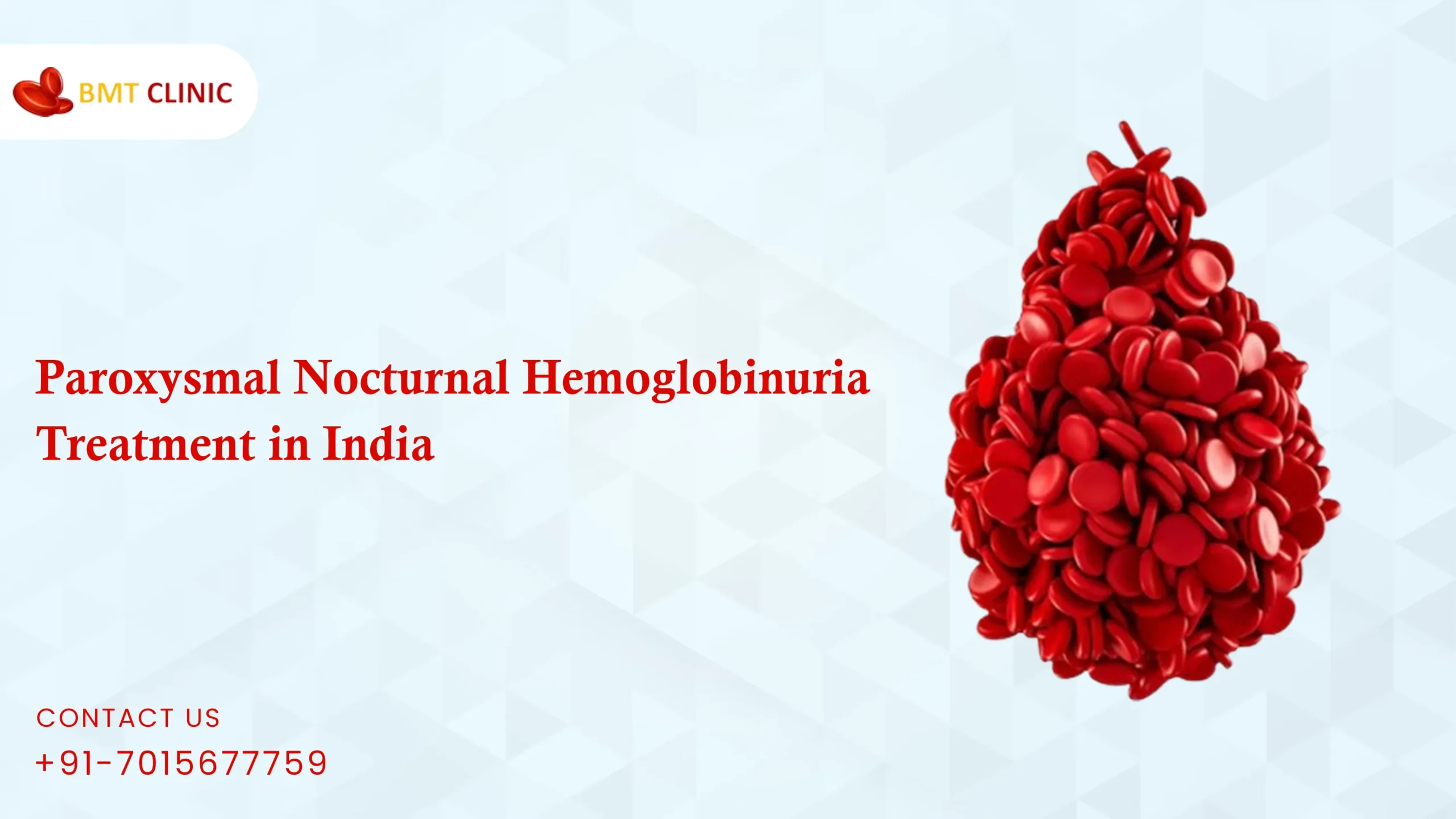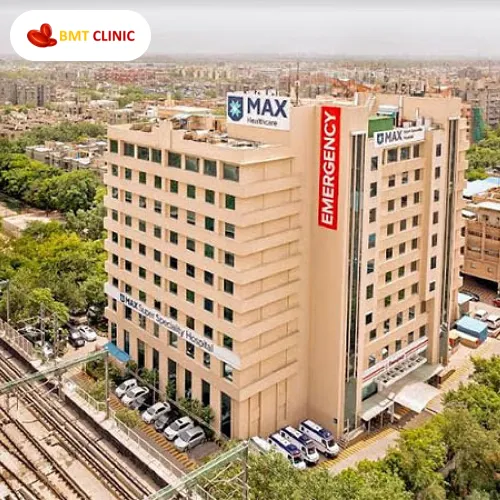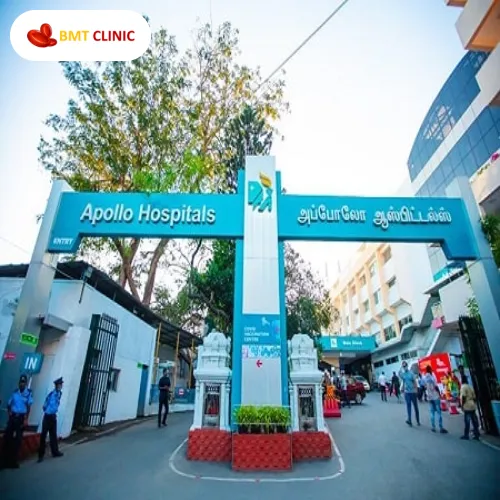Paroxysmal nocturnal hemoglobinuria (PNH) is an acquired clonal disorder of hematopoiesis characterized by an abnormal sensitivity of the patient’s red blood cells to lysis by the normal components present in plasma.
Paroxysmal Nocturnal Hemoglobinuria Treatment Cost in India
The cost of treating Paroxysmal Nocturnal Hemoglobinuria in India varies from 20,000 USD to 40,000 USD. The cost is contingent upon the specific treatment recommended by your healthcare provider, which typically takes into account the patient’s overall health condition.
Treatment for Paroxysmal Nocturnal Hemoglobinuria and its Cost
The cost associated with the treatment of paroxysmal nocturnal hemoglobinuria (PNH) can fluctuate based on the specific treatment employed and various other factors:
- Eculizumab: Range from 1200 USD to 2200 USD
- Pegcetacoplan (Empaveli): Range from 1000 USD to 1800 USD
- Iptacopan: Range from 1800 USD to 3500USD
- Allogeneic bone marrow transplantation: Range from 22000 USD to 40,000 USD
Please know that the total prices will depend on serval factors.
Factors That Can Affect the Cost of Paroxysmal Nocturnal Hemoglobinuria Treatment in India
- Treatment Type: Various treatments are designed to address the issues of the disease and these treatment options will depend on the patient’s conditions. The nature and intricacy of the treatment will have a considerable impact on the overall cost.
- Location of the Hospital/Clinic: The cost of living and business operations differs across various cities and regions in India. Consequently, the hospital/clinic’s location can play a significant role in determining the total treatment expenses.
- Treatment Duration: The financial implications can escalate when treatment requires multiple sessions, leading to increased overall expenditure for the patient.
- Technology and Equipment: The use of advanced technology and state-of-the-art equipment during treatments can elevate costs. Innovative techniques often yield superior results, which can justify the higher price point.
- Severity of the Issue: The intensity of the hair problem and the extent of treatment needed will influence the total cost. More serious conditions may require additional sessions and products, leading to increased financial outlay.
- Aftercare Requirements: Certain treatments necessitate aftercare, which may involve medications, follow-up appointments, or specialized hair care products. These supplementary expenses should be factored into the overall financial plan.
What is Paroxysmal Nocturnal Hemoglobinuria?
Paroxysmal nocturnal hemoglobinuria (PNH) is an uncommon hematological condition characterized primarily by a distinctive symptom: the presence of red, brown, or dark urine observed during late-night or early-morning bathroom visits. The term “paroxysmal” denotes sudden occurrences, “nocturnal” refers to the night, and “hemoglobinuria” indicates urine that is stained with hemoglobin. The dark coloration of the urine results from the destruction of red blood cells by the immune system, a process known as hemolysis.
While dark urine is a notable symptom of PNH, it is one of several indicators that may point to serious underlying health issues. If left untreated, PNH can lead to complications such as hemolytic anemia, chronic kidney disease, or thrombosis, which involves the formation of blood clots within blood vessels. Medical professionals typically manage PNH with medications aimed at preventing damage to blood cells.
What Causes Paroxysmal Nocturnal Hemoglobinuria?
Paroxysmal nocturnal hemoglobinuria (PNH) is an uncommon hematological condition characterized primarily by a distinctive symptom: the presence of red, brown, or dark urine observed during late-night or early-morning bathroom visits. The term “paroxysmal” denotes sudden occurrences, “nocturnal” refers to the night, and “hemoglobinuria” indicates urine that is stained with hemoglobin. The dark coloration of the urine results from the destruction of red blood cells by the immune system, a process known as hemolysis.
While dark urine is a notable symptom of PNH, it is one of several indicators that may point to serious underlying health issues. If left untreated, PNH can lead to complications such as hemolytic anemia, chronic kidney disease, or thrombosis, which involves the formation of blood clots within blood vessels. Medical professionals typically manage PNH with medications aimed at preventing damage to blood cells.
What Are the Symptoms?
Paroxysmal nocturnal hemoglobinuria, despite its name being derived from a specific symptom, often leads individuals to seek medical attention primarily due to significant and ongoing fatigue that disrupts their daily activities. Additional symptoms associated with this condition may include:
– Shortness of breath (dyspnea).
– Renal complications.
– Difficulty in swallowing (dysphagia).
– Esophageal spasms.
– Abdominal pain.
– Lumbar pain.
– Erectile dysfunction.
How Paroxysmal Nocturnal Hemoglobinuria is Diagnosed And Treated?
Healthcare providers may employ various tests to detect indicators of Paroxysmal Nocturnal Hemoglobinuria (PNH). Following the analysis of these test results, they might utilize a technique known as flow cytometry to assess the condition of your blood cells. The tests that healthcare providers may consider include:
- Complete blood count with differential (CBC w/diff): This test allows healthcare providers to identify potential blood disorders such as anemia and thrombocytopenia.
- Basic metabolic panel (BMP): This panel helps in detecting signs of chronic kidney disease and renal dysfunction.
- Urinalysis: This examination can reveal the presence of hemoglobinuria (blood in urine) and hemosiderosis (excessive iron deposits).
- Reticulocyte count: This count evaluates the number of immature red blood cells (reticulocytes) produced in the bone marrow, assisting healthcare providers in determining whether sufficient healthy red blood cells are being generated.
- Haptoglobin test: Haptoglobin is a protein responsible for clearing debris from damaged red blood cells. Low levels of haptoglobin may indicate red blood cell damage.
- Lactate dehydrogenase (LDH): LDH is an enzyme found in red blood cells, and elevated levels may suggest increased destruction of these cells.
- Liver function tests: These tests measure bilirubin levels, which may rise when red blood cells undergo breakdown.
Treatment Paroxysmal Nocturnal Hemoglobinuria
Healthcare professionals utilize specific treatments known as complement inhibitors, which prevent the complement system from damaging red blood cells.
Before the introduction of this therapy, individuals diagnosed with paroxysmal nocturnal hemoglobinuria (PNH) required frequent red blood cell transfusions to manage anemia associated with the condition. At that time, the life expectancy for those with PNH typically ranged from 10 to 22 years post-diagnosis. The sole curative option for PNH was an allogeneic stem cell transplant. Recent studies indicate that patients undergoing this treatment can anticipate a life expectancy comparable to that of individuals without PNH.
Eculizumab: It has been shown to enhance the 5-year survival rate for PNH patients from 66.8% to 95.5%. Nevertheless, its use is limited in developing nations due to its prohibitive cost and issues related to availability.
Pegcetacoplan (Empaveli): This treatment is generally more affordable than eculizumab. However, its overall cost may be influenced by multiple factors, such as the pricing of eculizumab and eculizumab, the frequency of treatment discontinuation, and the criteria for hemoglobin level thresholds.
Iptacopan: This oral monotherapy has recently received FDA approval for the treatment of PNH in adult patients.
Allogeneic bone marrow transplantation remains the sole curative option for PNH. However, its application is infrequent in contemporary practice due to associated toxicities, including transplant-related mortality and graft-versus-host disease.
A Note From Medsurge India
Getting news about a rare blood disease can be a daunting experience; however, Individuals diagnosed with Postherpetic neuralgia (PHN) now benefit from advanced treatments that safeguard their blood cells and diminish the likelihood of severe health complications. With the progress made in medical technology and research, numerous effective treatment options are now accessible. If you or a loved one has been diagnosed and is in search of cost-effective treatment alternatives, please contact us. The Medsurge India team is committed to helping you locate the finest hospitals and specialists in India, as we partner with leading medical institutions and experts throughout the country.














